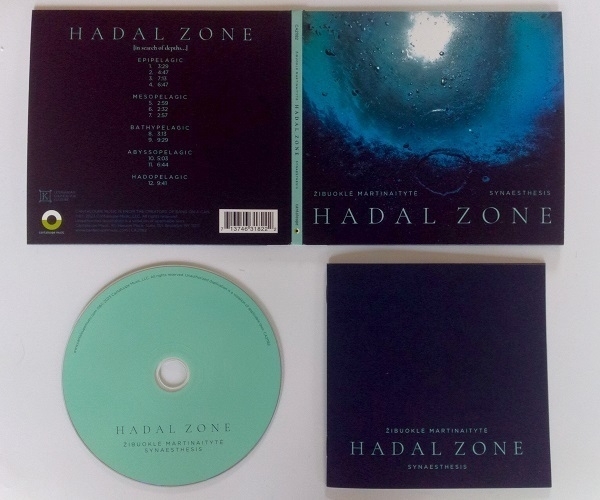Hadal Zone

Newly-arrived this week, Hadal Zone, a recently-released album from Lithuanian-born composer Žibuoklė Martinaitytė. While it’s music largely free of melodic or rhythmic hooks, it is nevertheless a compelling sonic experience, one based on the simple concept of a descent to the uttermost depths of the ocean.
After a brief but unsettling introduction, the following eleven tracks lead the listener from the daylit open ocean ever downward, with ever-deeper pitches to the fore as the water, as it were, grows darker, colder & more compressed. The instrumental line up of bass clarinet, cello, piano, double bass and tuba is augmented by electronically-mediated vocal sounds. While at times the music expresses agitation & motion, an uneasy sense of calm is more prevalent. The final tracks–where things are at their deepest & darkest–I find the most fascinating. I’d love to hear them issuing from a large & powerful sound-system; there’s only so low my small bookshelf speakers can go.
The piece comes across as a near-counterpart to John Luther Adams' Sila: the Breath of the World which moves in the opposite direction, from low sounds to high ones over a similar ca. one-hour duration (although Sila, is arguably more abstract than this work). I first heard of Martinaitytė last year, having been intrigued by a review of her album Saudade, though I ultimately struggled to appreciate the works on that disc after buying a copy. Around the same time I’d encountered the then-unfamiliar term ‘Hadal Zone’ from its use as a title to the closing section of Julia Armfield’s unusual and interesting novel Our Wives Under the Sea, which also revolves around a voyage to the lowest oceanic depths.